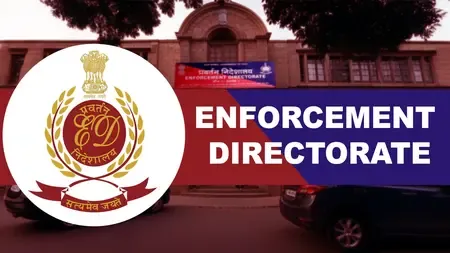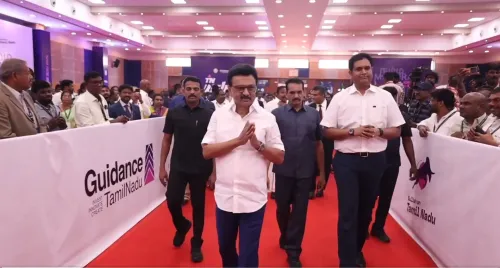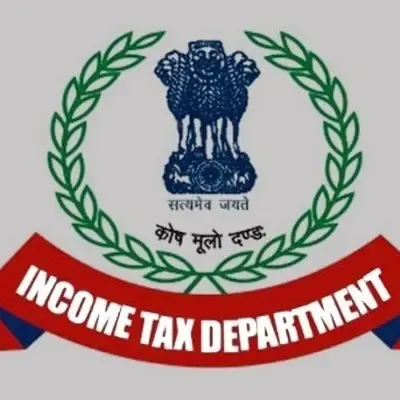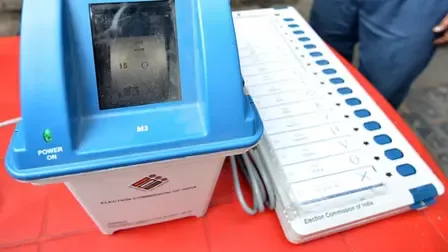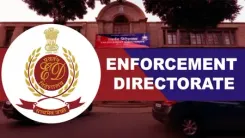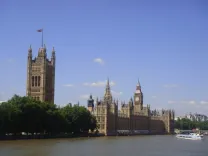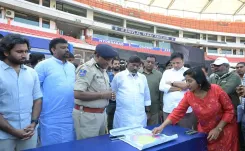Supreme Court's Pivotal Rulings in 2024: From Electoral Bonds to Child Marriage

New Delhi, Dec 29 (NationPress) From annulling the electoral bonds scheme to making decisions on quotas within quotas and the criminal accountability of lawmakers, here are the critical rulings made by the Supreme Court in 2024.
Electoral bonds
In February 2024, a five-judge Constitution Bench invalidated the electoral bonds scheme, asserting that preventing voters from knowing the details of political party funding creates a dichotomous situation. The funding of political parties cannot be treated differently from that of candidates contesting elections.
In a unanimous decision, the Constitution Bench, led by CJI D.Y. Chandrachud (now retired) and including Justices B.R. Gavai, Sanjiv Khanna, J.B. Pardiwala, and Manoj Misra, instructed the State Bank of India (SBI) to immediately cease issuing electoral bonds. They also mandated that the Election Commission disclose on its official website the political parties that have received contributions through electoral bonds since April 2019.
Following this, a 3-judge Bench dismissed a Public Interest Litigation (PIL) demanding a Special Investigation Team (SIT) probe under the supervision of a retired supreme court judge into an alleged scandal in election financing involving electoral bonds.
UP Madarsa Act
A bench, presided over by then CJI Chandrachud, overturned the Allahabad High Court's decision that had annulled the Uttar Pradesh Board of Madarsa Education Act, 2004. The High Court had declared the law unconstitutional for breaching the basic structure and principles of secularism.
The Bench, which included Justices Pardiwala and Misra, deemed the Madarsa Education Act “unconstitutional” to the extent it interferes with higher education, conflicting with the UGC Act. It determined that Article 21-A of the Constitution and the Right of Children to Free and Compulsory Education (RTE) Act, 2009 must be interpreted in harmony with the rights of religious and linguistic minorities to create and manage educational institutions of their choice.
Prosecution of MPs/MLAs for Bribery
In a unanimous ruling, a 7-judge Constitution Bench, led by CJI Chandrachud, overturned a 1998 ruling that granted immunity to lawmakers from criminal prosecution for accepting bribes to influence speeches or votes in Parliament or state legislatures.
The Supreme Court clarified that MPs/MLAs cannot assert immunity from prosecution in a criminal court for participating in bribery related to voting or making statements in a specific manner.
In its 1998 ruling in the P.V. Narasimha Rao versus CBI case, the apex court had established that parliamentarians, in light of Article 105 of the Constitution, enjoy immunity from criminal prosecution concerning anything expressed or any vote cast in Parliament. A similar immunity is provided by Article 194(2) for members of State Legislatures.
‘Quota within quota’ Allowed
In August of this year, a 7-judge Constitution Bench ruled that sub-classification within Scheduled Castes (SCs) and Scheduled Tribes (STs) is permissible for extending affirmative action benefits.
The ruling suggested applying the “creamy layer” principle for accessing quota benefits, but cautioned that while implementing sub-classification, the government cannot allocate 100% of seats available for SCs/STs to a specific sub-class at the expense of other castes on the list.
In a 6:1 decision, the court reversed its 2004 judgment, which had opposed preferential treatment for certain sub-castes within SCs, asserting that members of reserved category groups form a homogeneous class incapable of further grouping or classification.
Caste-Based Labor Division in Prisons
The Supreme Court declared unconstitutional the practice of assigning “lower caste” jail inmates to cleaning and manual scavenging tasks in prisons. The Bench, led by then CJI Chandrachud (now retired) along with Justices Pardiwala and Misra, ordered that the “caste” column and any caste references in prisoners’ records be eliminated from prison manuals and related laws.
Section 6A of Citizenship Act Affirmed
A five-judge Constitution Bench confirmed the constitutional validity of Section 6A of the Citizenship Act, 1955, which was introduced to implement the Assam Accord and underpinned the National Register of Citizens (NRC) in Assam in 2019.
Interpretation of Article 39(b) of the Constitution
A seven-judge Constitution Bench ruled that not every resource owned by an individual qualifies as a “material resource of the community”, merely because it meets the criterion of “material needs”.
The bench, led by CJI DY Chandrachud (now retired) and including Justices Hrishikesh Roy, B.V. Nagarathna, Sudhanshu Dhulia, Pardiwala, Misra, Rajesh Bindal, S.C. Sharma, and A.G. Masih, examined whether the term “material resources of the community” in Article 39 (b) encompasses privately owned properties and whether laws designed to achieve this provision's goal of redistributing material resources for the “common good” can be exempted from legal challenges based on fundamental rights violations.
While Justice Nagarathna authored a separate but partially agreeing opinion, Justice Dhulia provided a dissenting judgment.
Adani-Hindenburg Controversy
The Supreme Court declined to establish any SIT or group of experts to investigate the Adani-Hindenburg controversy, asserting that the facts of the case did not justify transferring the investigation from SEBI. The court maintained that reports from third-party organizations such as the Organised Crime and Corruption Reporting Project (OCCRP) and Hindenburg Research cannot be considered as “conclusive proof”.
LMV License Holders and Transport Vehicles
A five-judge Constitution Bench reiterated that Light Motor Vehicle (LMV) license holders are not required to obtain a separate endorsement to operate a transport vehicle of the LMV category if its gross weight is below 7,500 kg.
Effective Implementation of Prohibition of Child Marriage Act, 2006
Stating that child marriage robs children of their agency, autonomy, and the right to fully experience their childhood, the Supreme Court issued several directives for the effective enforcement of the Prohibition of Child Marriage Act, 2006. This includes instructing state governments and Union Territories to appoint officials solely responsible for the duties of Child Marriage Prohibition Officers (CMPOs) at the district level.
Recruitment Rules Cannot Be Amended Midway
A Constitution Bench reiterated that recruitment regulations cannot be modified once the selection process has begun, unless stated otherwise in the existing rules or the recruitment advertisement. If a change in eligibility criteria is allowed under the rules or advertisement, it must meet the test of non-arbitrariness.
Appointment of Arbitrators in Public-Private Contracts
A 5-judge Constitution Bench determined that the unilateral appointment of arbitrators by a government entity in a public-private contract violates Article 14 of the Constitution. Given that government activities have a public aspect, it is essential for the government to engage in contracts with the public without resorting to unfair or unreasonable practices.


